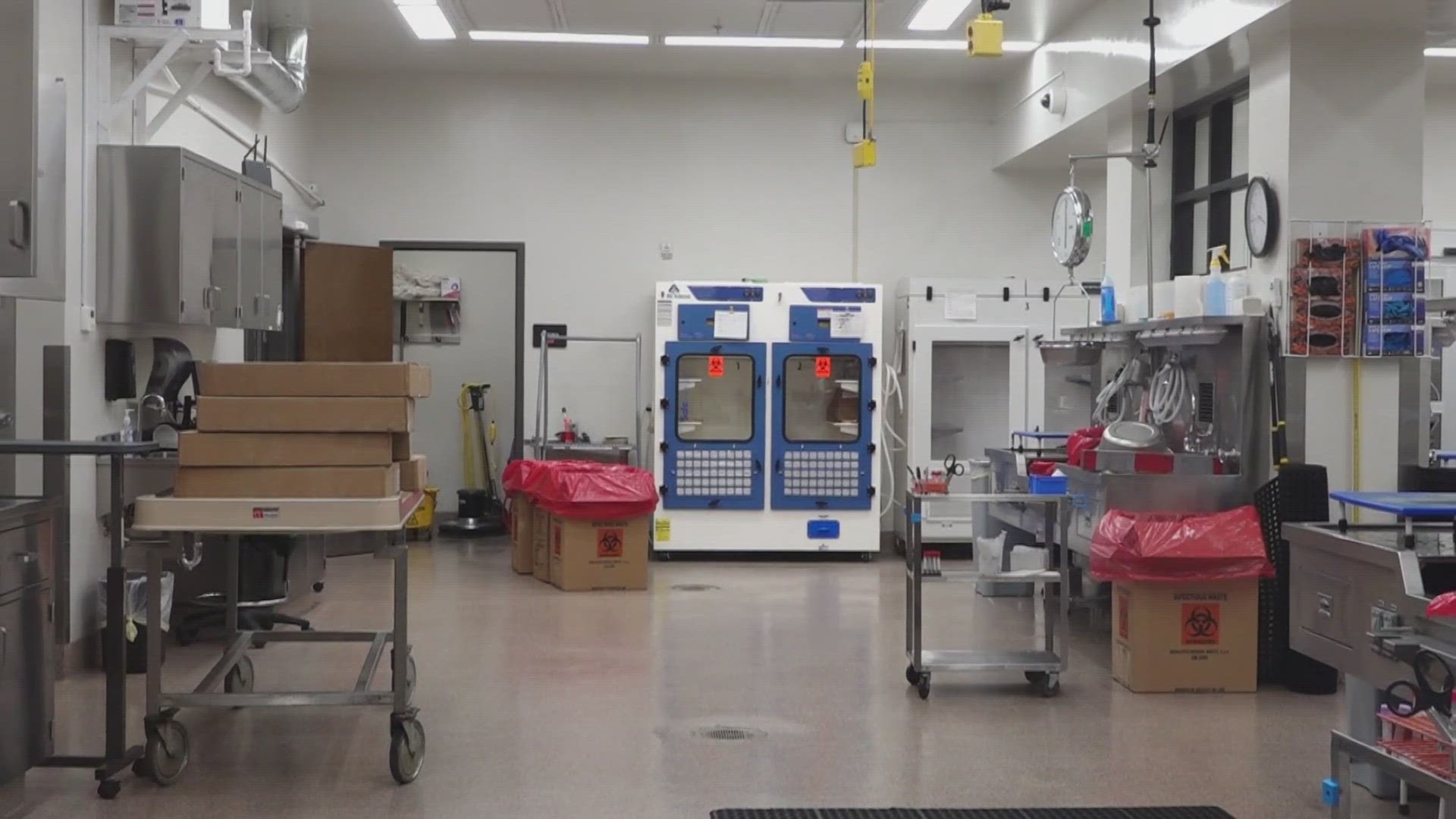KNOXVILLE, Tenn. — A big backlog in DNA analysis is making it harder for missing people to be found. Some families are waiting up to five years just to get their loved one's DNA into the National Missing and Unidentified Persons System (NAMUS).
It's a country-wide database used by law enforcement, forensic examiners, investigators and community members.
"It was built for the purpose of allowing people access to it. Family members of the missing, friends, even people that live in the same town — anybody can put a missing person into NamUs," said Todd Matthews, the former director of NamUs.
Some states, like Tennessee, even have laws around the system. Tennessee requires law enforcement officials to enter missing person cases into NamUs after 30 days of the person not being located.
The system has a spot to enter the person's name, age, weight, height, and other physical features. Folks can upload photos of their missing loved ones. They can explain the circumstances of their disappearance. They can also upload DNA.
However, with more than 23,000 missing people across the U.S., few contain DNA samples on their profiles.
Part of the issue is a nationwide delay in DNA profiling.
According to the Knox County Regional Forensic Center, just one or two labs handle all of the missing and unidentified DNA profiles in the county. Those one or two labs are the only free ones with the certifications to upload DNA data into the NAMUS database.
"The backlog is years. When I first started here, about five years ago, they were able to get DNA results back within eight months," said Megan Sharpe, a Medicolegal Death Investigator for the Regional Forensic Center.
Sharpe said due to the backlog, and funding issues, the free labs only accept between 20 and 25 new cases each year. Those cases must be split in order of priority between all the forensic centers in the country. There are about 400 public forensic crime centers in the U.S.
As NamUs' former director, Matthews said backlog has always been an issue.
"It's nothing new that processing DNA takes a long time. It is a free service, and there are a lot of people that want it. So there is a backlog, there always has been a backlog," Matthews said.
He also said the labs closed their doors during the COVID-19 pandemic. While they were closed, people continued to be reported missing and unidentified bodies continued to pop up across the country.
"COVID, it kind of delayed a lot of things. The labs were closed down for a period of time," Matthews said.
Now catching up with the backlog is a funding concern.
"There's always a need for funding. The more people, the more resources that you have for a system like that, the better," he said.
In Knox County, NamUs shows there are 96 missing person cases. Few of them contain DNA samples for cross-referencing. There are 13 unidentified bodies or skeletal remains. There are at least 322 unclaimed bodies.
The Regional Forensic Center's primary concern is getting the 13 unidentified bodies identified.
"It's not television. Those writers don't work for us, unfortunately. You know, we can't just jump ahead to the next scene where we know who somebody is, or we have the money to find out who somebody is," Sharpe said.
In some cases of extreme urgency, the Regional Forensic Center has outsourced from the free labs to paid private ones for quicker results.
However, those can cost up to $8,500 per DNA sample.
"We're just trying to reunite who should be reunited," Sharpe said.

